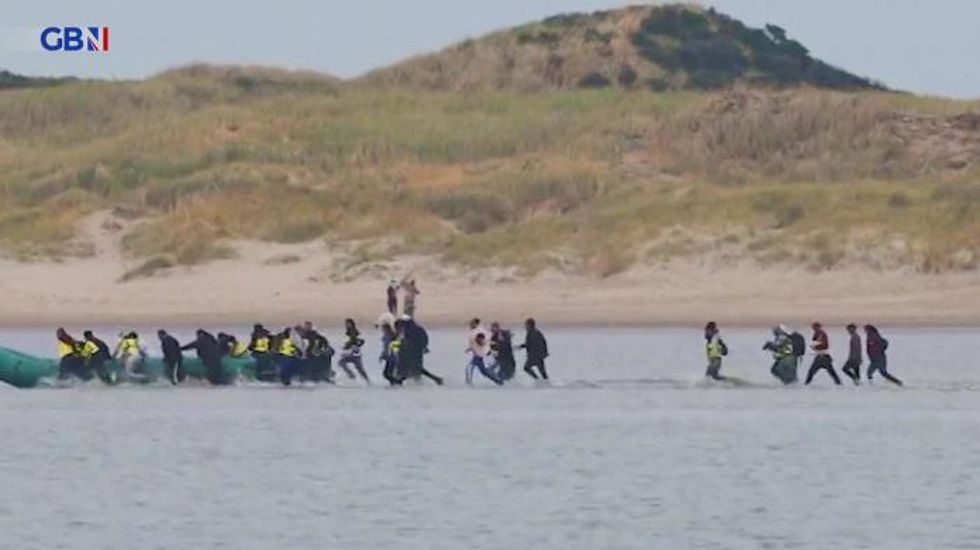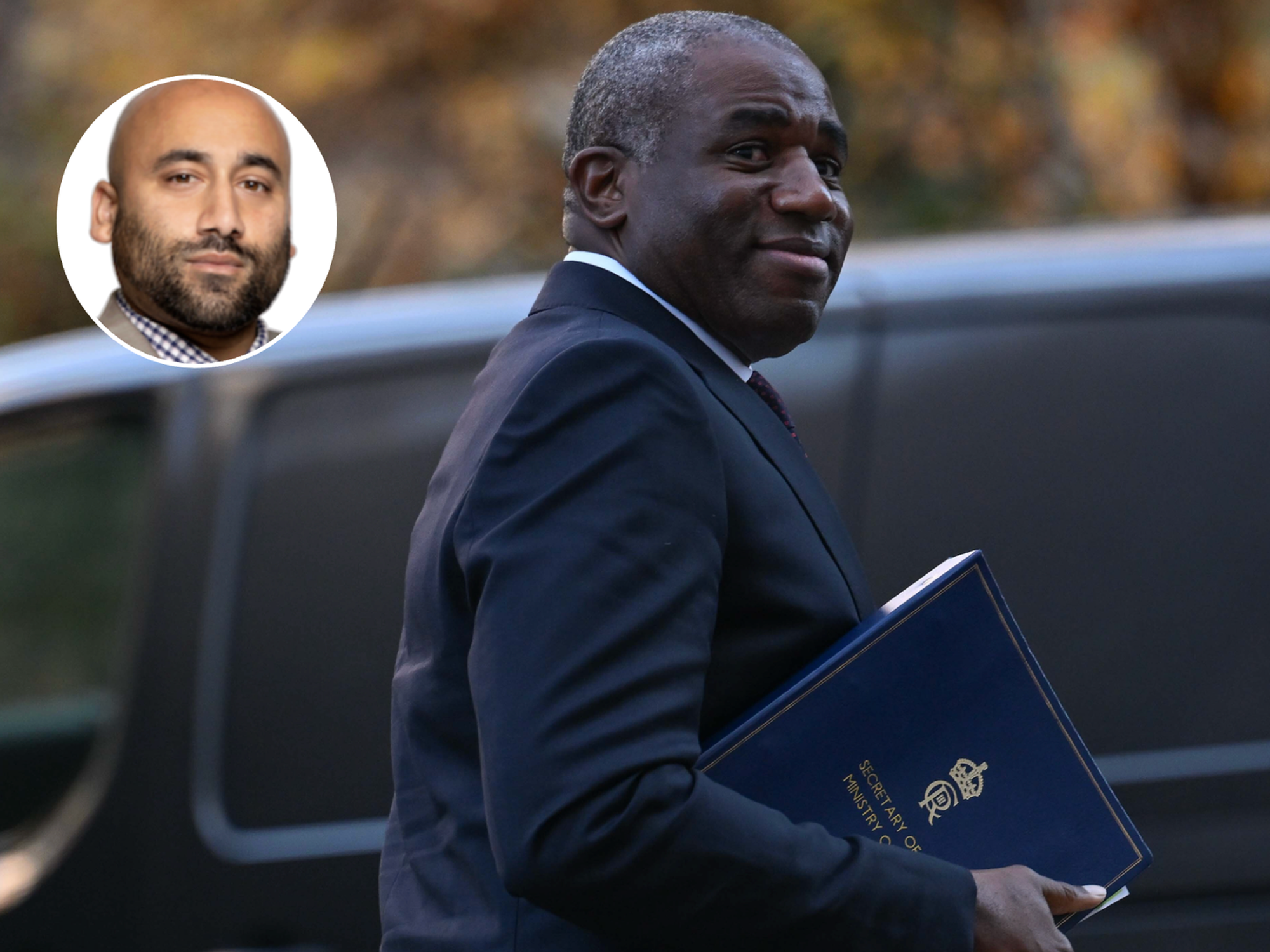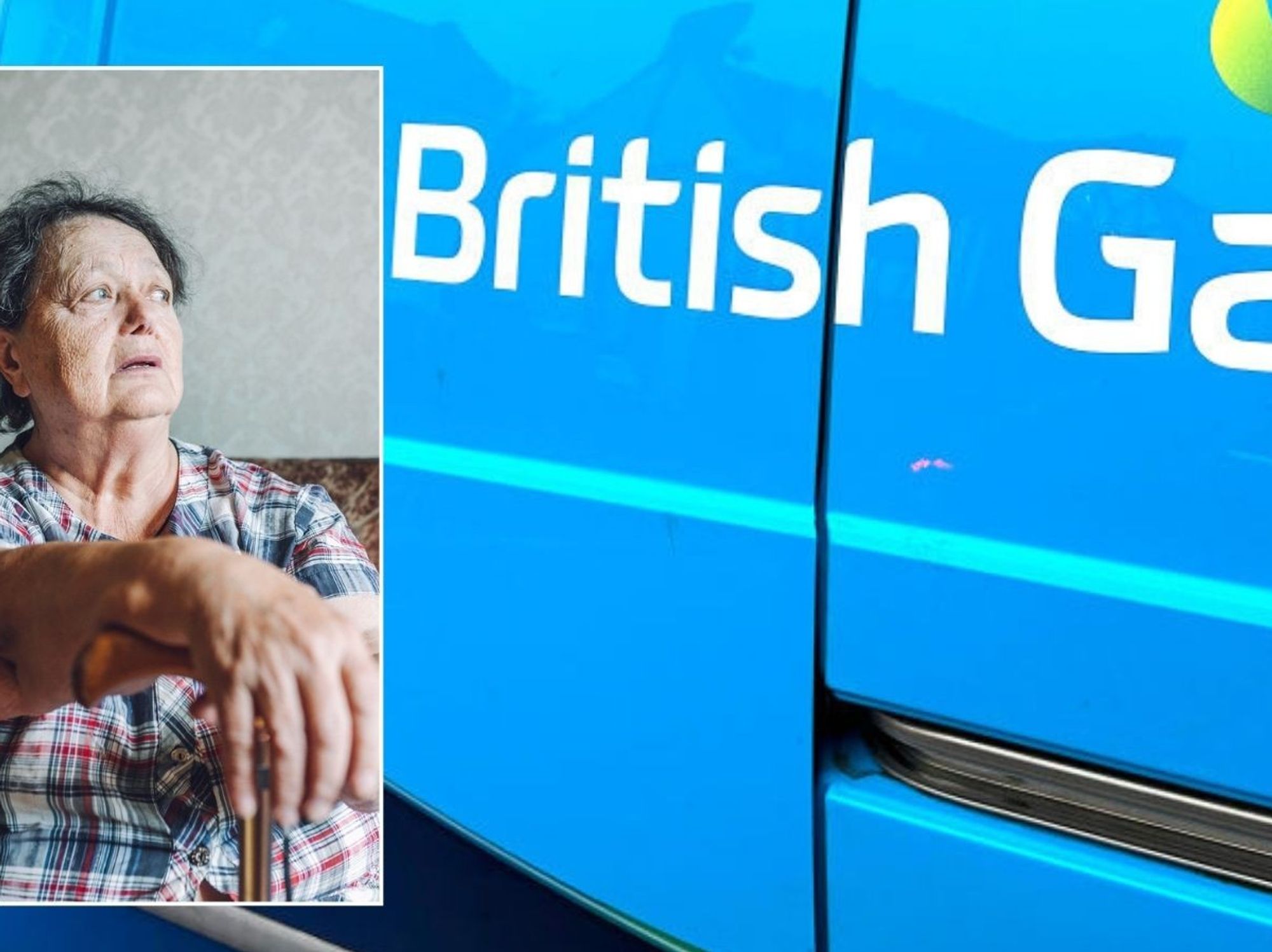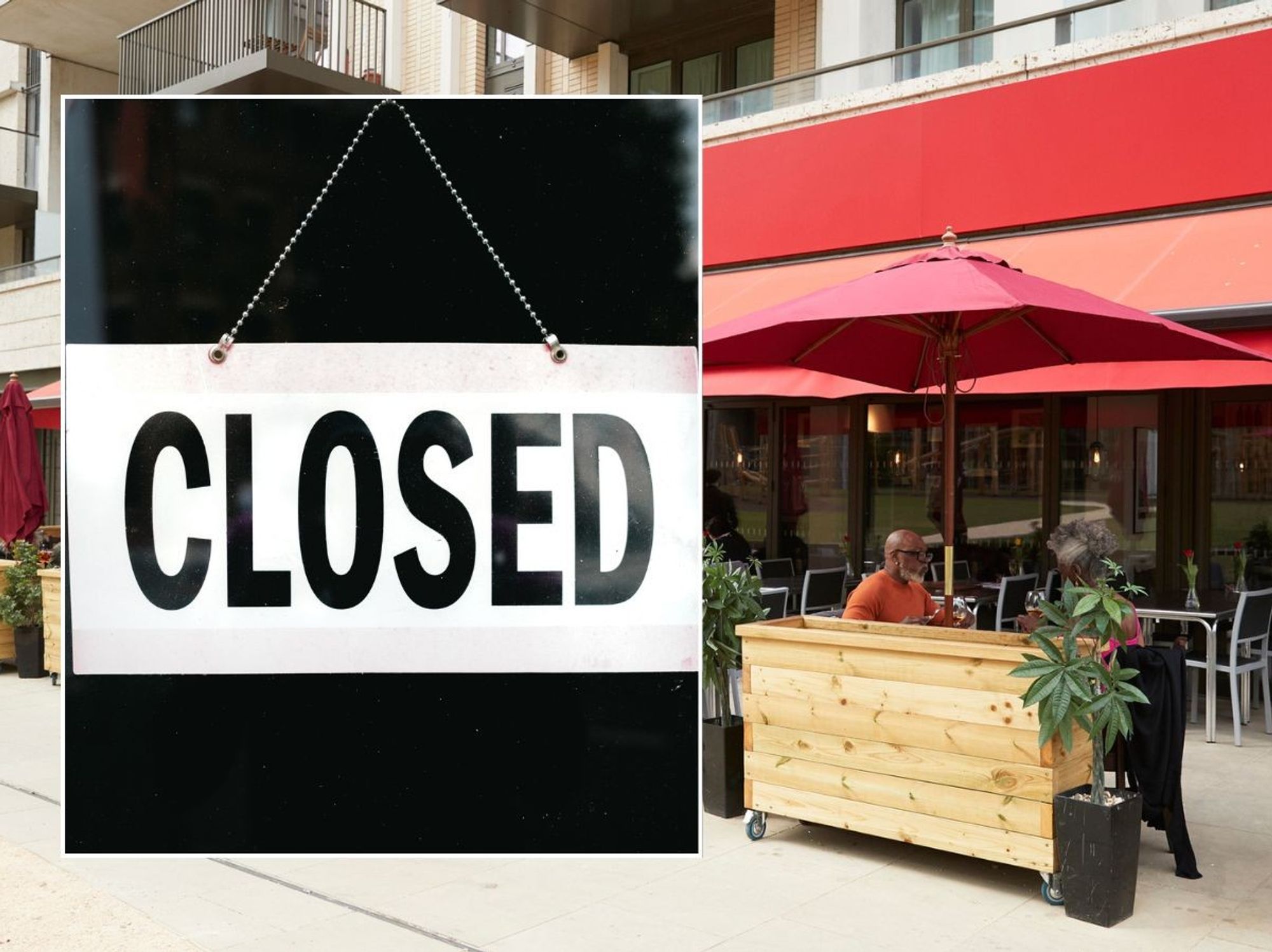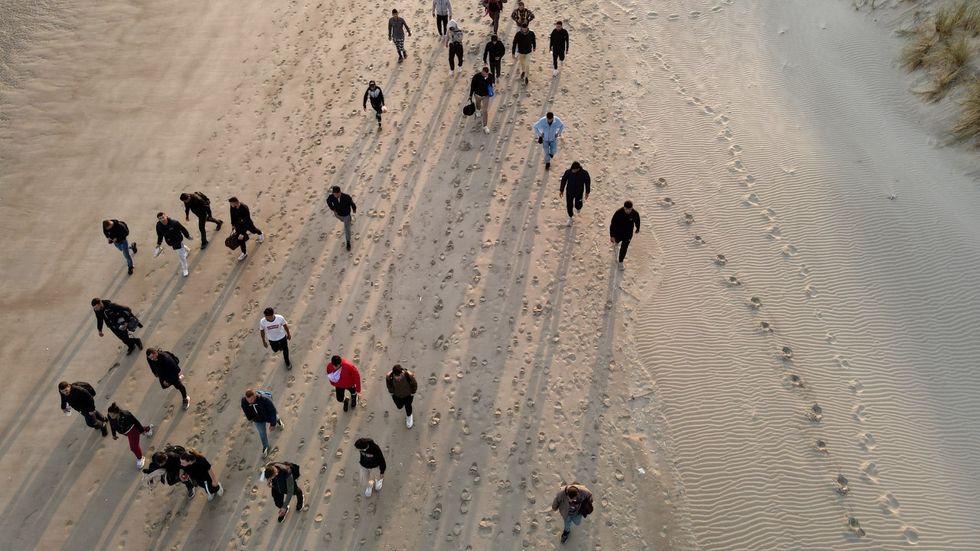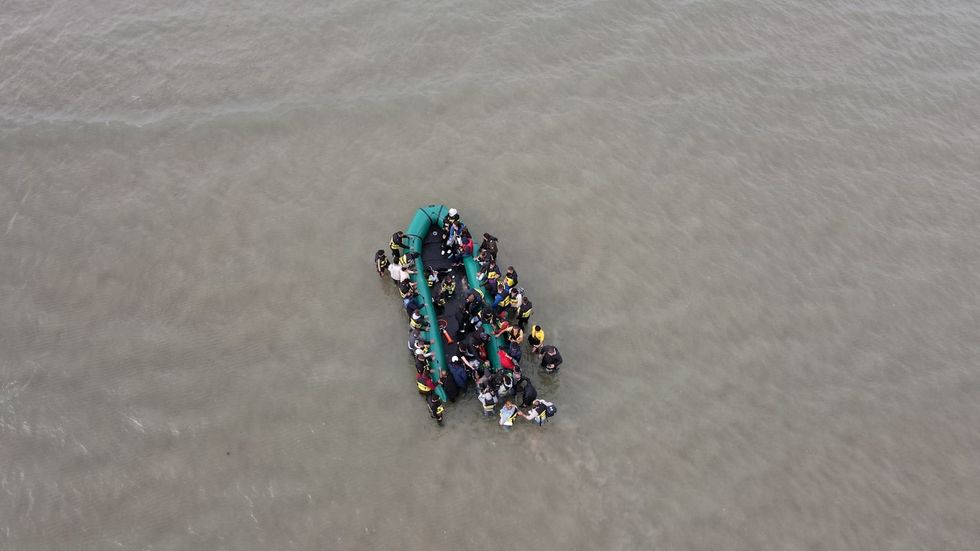GB News producer describes scenes on French beach used by migrants to launch boats into the Channel
GB News captured exclusive drone footage of migrants clambering aboard a boat to cross the Channel
Don't Miss
Most Read
Latest
Scenes of migrants arriving in the UK flash up on our TV screens on an almost daily basis but seeing it live in the flesh is a baffling experience.
Nothing can prepare you for the casual manner in which more than 50 amateur sailors, all but one of them men, carry a small boat across a French beach and begin the potentially lethal 20-mile journey to the UK.
I watched as one brazen group set off at 5pm from a sunny North France beach, passing workers, tourists, locals and diners. No one batted an eyelid.
And why would they? For anyone who has strolled along Gravelines Beach recently this is a daily occurrence. As frequent as a French resident shopping for a baguette, the local café worker opening their doors for a day of service or a dog walker taking their pooch to stretch its legs.
This attempt to tackle the Channel came only two days after the number of migrants crossing on small boats this year surpassed 20,000 with 40,000 predicted to make the journey – more than double the whole of 2021.
Migrants are boarding boats on Gravelines Beach
GB News
The latest vessel did make it to Dover, just before midnight, but with some difficulty.
Footage captured by GB News showed two migrants were left behind despite taking the boat some 500m into the sea. They just weren’t quick enough.
Another injured himself by catching his leg under the dingy and had to be carried by two friends.
He managed to clamber on and squeeze onto the dinghy that appeared to be at least double its capacity.
Slowly but surely it was on its way but it was clear that the weight of the asylum seekers had hugely hindered its speed.
Migrants clambering aboard the boat
GB News
As we monitored its progress there were times it looked like it wasn’t moving.
Such was our worry, we informed local police that they could be in some trouble. Luckily, a contact on the UK-side informed us that they had reached the Kent coast safely.
The following day at 7am, police stepped up their presence with two beach buggies.
They thwarted an attempt and pushed a group of 30 back to the nearby dunes where they had been sleeping rough just metres away.
Sleeping bags, clothes (some designer), plastic bottles, toiletries and even refugee documentation were left strewn in between bushes which had been flattened for makeshift beds. It was like the day after a Glastonbury festival.
Looking at the debris left behind, it is obvious that these rough sleepers have to move quickly when they are given the nod from their traffickers to say the coast is clear.
Ahead of one attempt, GB News saw at least three ‘spotters’ patrolling the beach waiting for a clear run.
They would poke their head out from the dunes to check where police were, with one not so subtle look-out walking his dog and occasionally looking across the sand through his binoculars.
It is clear what the motives of the brave (or misguided) migrants, who attempt to cross the Dover Strait with little supervision, are in heading to the UK – a better life.
GB News spoke to a Somalian and two Eritreans as they sipped from Desperado beer cans and shot cups of vodka by a nearby bus stop at a supermarket.
One had made the journey from Africa, where he had left two sisters and a daughter, to Malta, Italy and eventually Calais.
They told us that it would cost them £2,000 for a human trafficker to get them over. Money they didn’t have.
When asked why they were heading to the UK, they insisted work wasn’t available for them in the countries they had travelled through and would be more than happy to get a job as a hairdresser or labourer if they eventually had a successful trip.
But whose fault is it that that seems to be their only option?
Locals adopt the theory that Britain is a soft-touch and attractive for people across the world trying to improve their way of life.
One suggested that it was Europe’s issue and that the continent should accept collective responsibility.
But what country would bother when this problem barely affects them as migrants are merely passing through to finish up in, what one local called, the “golden ticket” to a better life?


